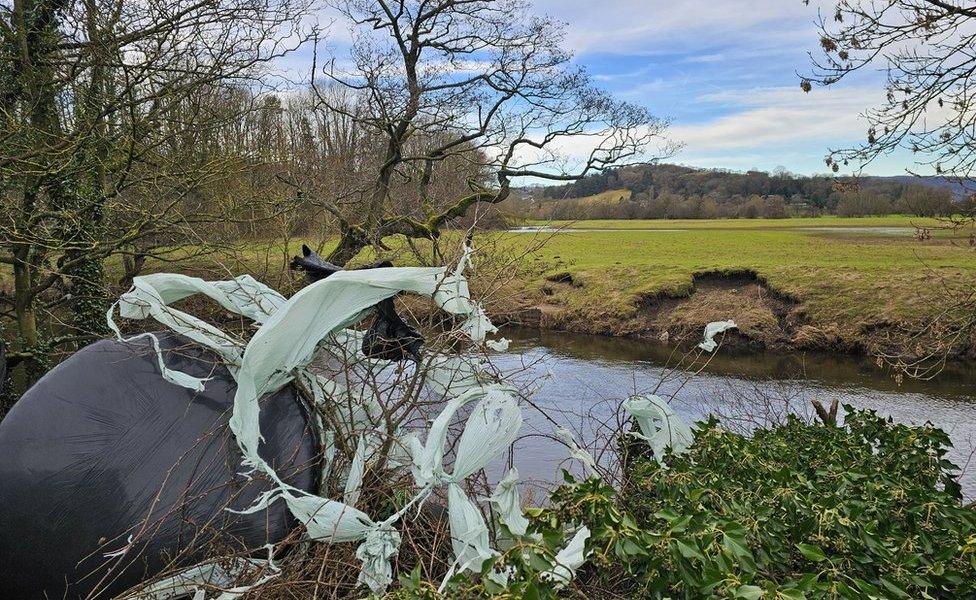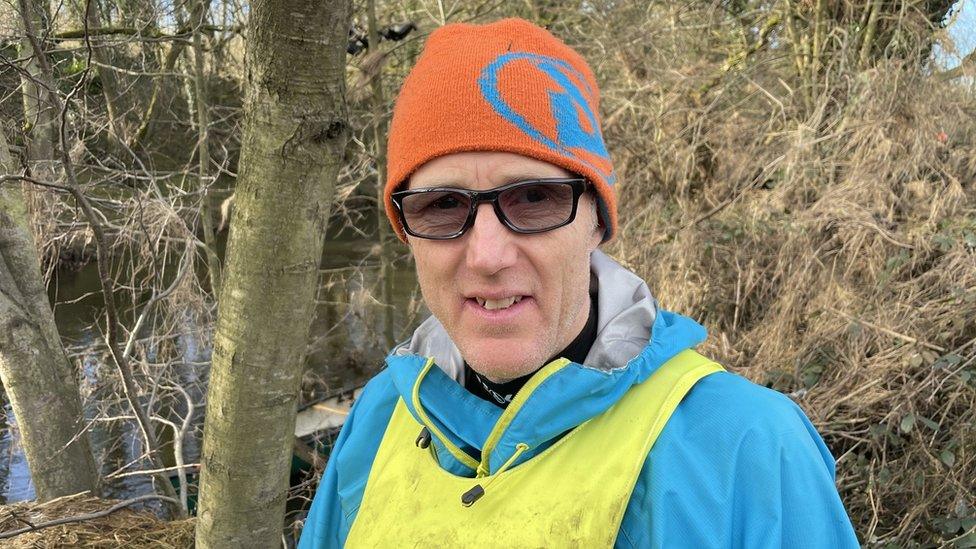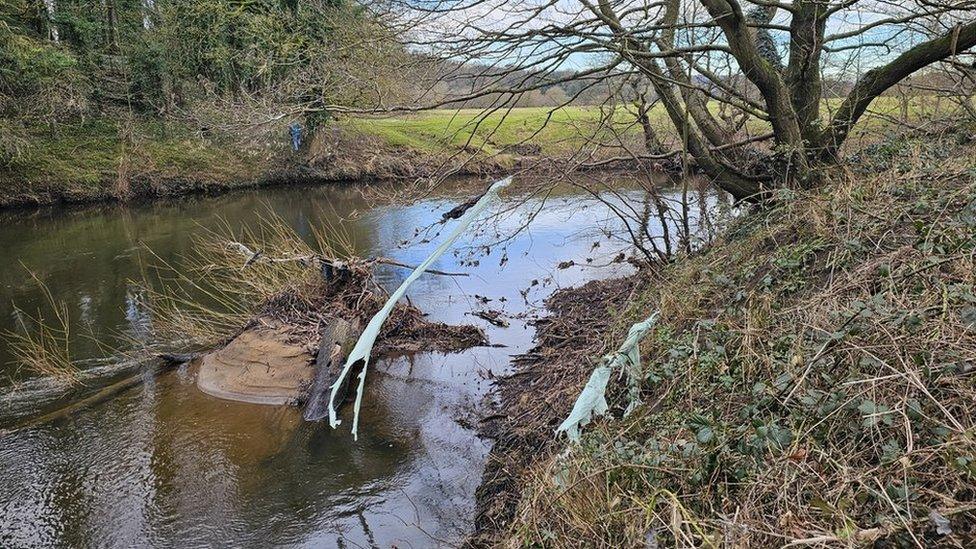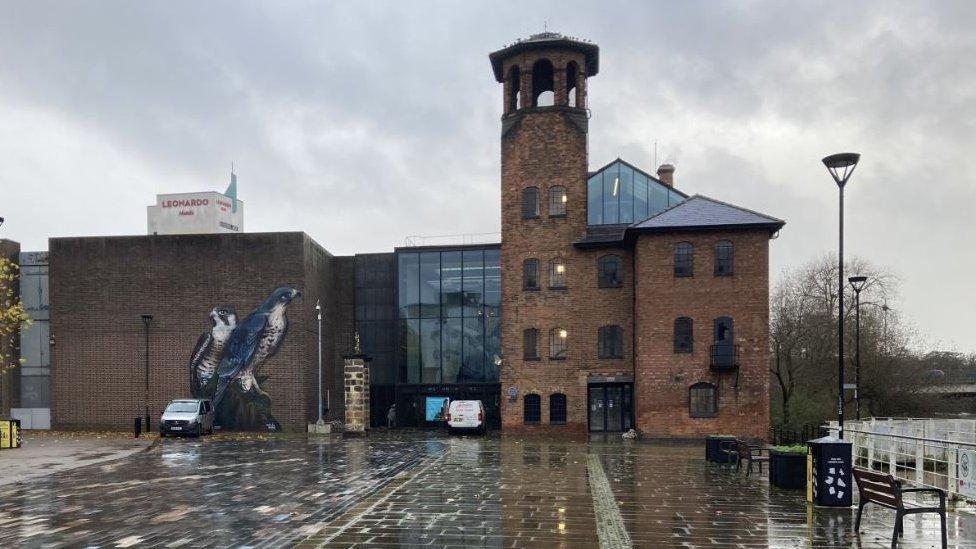Storm Babet: Volunteers unhappy at state of 'horror show' river
- Published

Storm Babet and the subsequent floods washed a number of silage bales into the River Derwent
Volunteers say they are unhappy at being left to clear up plastic from a river following recent storms.
Silage bales from a farm were washed into the River Derwent following floods brought on by Storm Babet in October.
The volunteers, from community group Paddle Peak, have been out in their kayaks in Matlock clearing up, adding the river looked like a "horror show".
The National Farmers' Union (NFU) said the owner of the bales had said he was "very sorry".
Paddle Peak said plastic lined parts of the river, with some dangling from trees on its banks and from roots in the water.
It said volunteers had spent more than 25 days clearing up debris and planned another get-together next month.
"It's like a scene from a horror show, like a Dr Who set from the 70s, with black and green plastic hanging down from the trees," Peter Astles, founder of the group, said.
"It's the river that we enjoy for recreation and it's a wonderful place here in the Derwent Valley. But sadly it's a bit of a waste highway for rubbish.
"It's catastrophic, if this was oil in the sea, it would be a big incident but because it's plastic in the trees, it's not ticking anyone's boxes as a concern."

Peter Astles, from Paddle Peak, likened the river to a "Dr Who set from the 70s"
Mr Astles said something similar had happened before, with "400 bales" being washed down stream during floods in 2019 - taking months to clear up.
"We asked [authorities] to take some responsibility or to help us but it's no-one's remit to look after the waste that's in the river," he added.
Derbyshire County Council thanked the volunteers, but told the BBC clearing waste from a river is not its responsibility, as the waterway is managed by the Environment Agency.
But an agency spokesman said it was only able to remove material when it was causing a flood risk.
Andrew Critchlow, Derbyshire advisor for the NFU, told the BBC the farmer had begun to move the bales, but they could not manage to move them all due to their weight.
"He is very sorry about it, it was totally unintentional," Mr Critchlow said.
"There is no way he would've wanted it to happen due to the financial loss and the reputational damage.
"He's reassured me a silage pad is going to be built before the 2024 harvest."

The volunteers say they have spent more than 25 days clearing the river with another session planned for March

Follow BBC East Midlands on Facebook, external, on X, external, or on Instagram, external. Send your story ideas to eastmidsnews@bbc.co.uk, external or via WhatsApp, external on 0808 100 2210.
Related topics
- Published22 November 2023

- Published22 October 2023